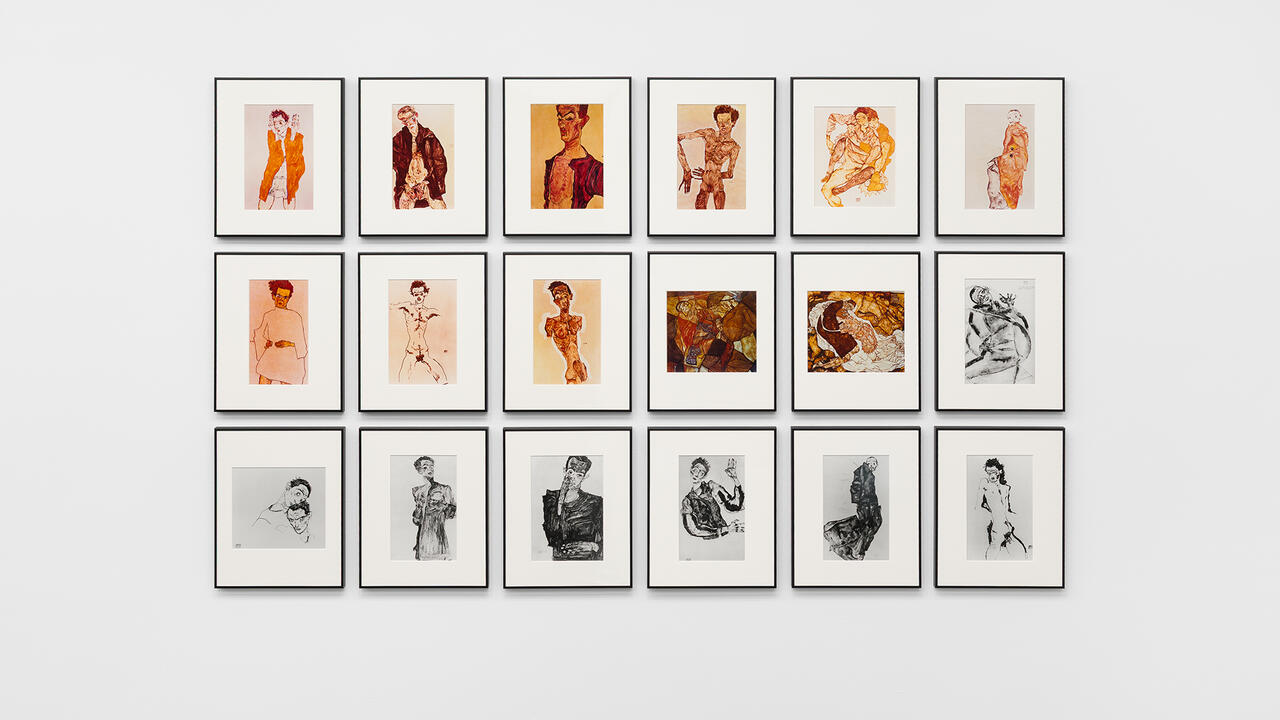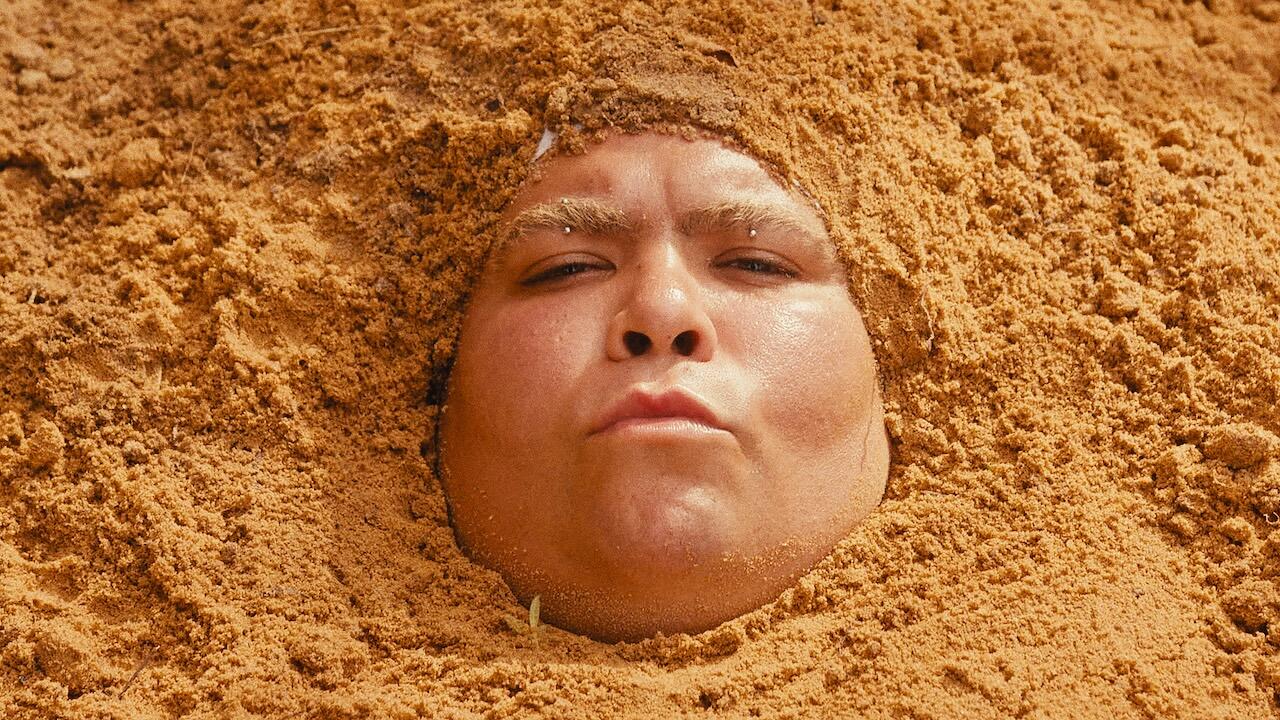About David Sylvester
Interview with David Sylvester
Interview with David Sylvester
Carl Freedman: You became interested in art through the discovery of a black and white reproduction of Matisse's La Danse and almost immediately took up painting and drawing, but then gave up after a year believing you were no good. It's not long to give yourself. Do you ever regret giving up?
David Sylvester: I loved doing it and I probably worked harder at it than I've ever worked at anything in my life. It was just something that didn't come naturally. When I first installed an exhibition, in 1951, a Henry Moore retrospective at the Tate, I felt I was doing something that was exactly right for me. I was completely convinced that I was at home doing it, and I've had that feeling ever since.
In your new book of selected writings, About Modern Art, you say that you began to write about art because from the things you read it looked like it would be easy. Was it?
Well it's a damn sight easier than making art.
I'm struck by the lack of uncertainty in your writing - you seem to have great faith in art. Do you see any particular foundations for that faith?
Art turns me on, that's all.
Your writings are also characterised by a sense of clarity.
I do have a very strong idea that I want it to be clear. And I write and rewrite until it is clear.
Do you write in order to concretise, to fix things?
I don't know why I do it, to be honest with you. It's all very compulsive. It's just a need one has, I don't know if it has any purpose. I think perhaps my first motive for writing is that I want to complete the experience of looking: that having been moved by something, I have a strange need to put the experience into words. It has to do with a desire to define how one felt, to try to describe what was happening when one was looking at the thing. I hate obscure writing about art. Obviously in the struggle to try and say how it is acting upon one, and what it is about, one finds oneself in areas of fog. And I've always thought that unless you can find your way out of that fog it wasn't worth doing. I've always had one motto when it comes to writing about art and it's something that comes from Wittgenstein from the preface to the Tractatus where he says, 'what can be said can be said clearly, and whereof one cannot speak thereof one must be silent'.
There are no negative articles or reviews included in your book. Is there a place for negative criticism?
There are one or two included, but I don't think most of them have any interest for me now. I did write some murderous, really horrible, pieces. I attacked a lot of things. One has to do it to defend one's position and the artists one admires, and to have a go at what one sees as corrupting forces. When I admired Bacon and Giacometti, there was a lot of crappy so-called figurative art being made which needed to be criticised. And I did.
Were you involved in the debate between figuration and abstraction?
No. I never engaged in that debate because I never saw it as a problem. There was no need to choose. They both had a valid existence and I've never changed my mind about that.
You do put John Berger under fire in the introductory chapter, though.
Well, I think that Berger did a lot of damage.
In what way?
By promoting lousy artists instead of good ones. He had a lot of influence. He was a very effective writer and a very good broadcaster, but meanwhile, a painter like Francis Bacon couldn't sell any pictures in this country. The standard price of a Bacon at the Hanover Gallery in the early 50s was 300 or 350 pounds, and nobody was buying them. Here was a great painter and Berger was too damn stupid to see that. Too prejudiced, too bigoted, too puritanical. He was also too simple and schematised. He didn't like any abstract art. What a clown!
You included a catalogue essay on Richard Long, 'Almost Doing Nothing', which was rejected by the artist. Did he ever say why he didn't want to use it?
No, though I wasn't surprised he didn't want it printed. First of all, I like his work very much. But in a way it makes you slightly self-conscious when you join the bandwagon of praise for somebody who is so widely accepted, so it seemed to me necessary to point out that he was, and I did it in a sort of ironic way. I then suggested that a couple of weaknesses had crept into his work and he found that difficult to accept. It seems to me that on the one hand Richard Long wants to be an internationally successful artist with a large and efficient promotional machine - he's never done anything to discourage that - and at the same time he'd like to be considered an indigent student tramping the countryside because nobody will give him a job. And he can't have it both ways. One could compare him to Kossoff who's a man of total integrity and who thinks of painting as a private activity. He really hates that whole publicity machine and gets miserable about it.
It's easy to get bored with Long's work. It becomes so repetitive.
One of the things I admire about Lucian Freud - who I think is a better artist than most people used to think he was and not as good an artist as most people now seem to think he is - is that he never succumbed to the temptation of sticking to a style of work out of which he could make a comfortable living for the rest of his life.
I find the really interesting period is that transition from being a derivative and unexceptional artist to discovering something original which then becomes an artist's own patented, signature style. It's easy to see in Mondrian, for example.
It never stopped with Mondrian. He was always doing something new. But one does feel with some artists that they come up with something successful and that's that. It's a very tempting thing. You do something and it's a success and somebody gives you a lot of money.
Have you ever fallen into the same trap?
You must know how lamentably writing about art is paid.
Do artists get better or worse as they get older?
I think that on the whole artists don't get better. And the same is true of lyric poets and mathematicians, and chess players. They have a few good creative years and then they cease to be creative. And that's fine. What I find horrible is the way artists get blamed for going off. It's not their bloody fault if they run out of steam. They should retire, but it's sometimes so well paid they just keep on churning things out. I don't see why artists should go on. Athletes don't go on. A few go on performing well until they are 40. A couple of world heavyweight champions have been 40. Of course, there are certain artists like Picasso and Matisse and Mondrian who went on making marvellous work for 50 or 60 years, but I don't see why artists in general should continue practising just because they did it once.
There often seems to be a kind of nostalgic appreciation of an artist's early work.
It's true. We want things to change and develop and then get disconcerted when they do. When people talk about Jasper Johns they almost always say 'Aah yes... the great period was the late 50s and early 60s and it's never been as good since'.
I saw the Johns sculptures last month in a really great show up in Leeds, and they did have an incredibly strong and memorable effect. The show had a very modest scale and low-key presentation - there was time and space to look, which is something almost impossible with the increasing blockbusterisation of exhibitions.
I totally agree with you. It is a very miserable thing about art that its own success has become counterproductive. A successful exhibition is a disaster and there's no way out of it.
I find that because of these blockbusters and the ubiquity of reproductions, it is no longer really possible to see classic Modern art with anything near the same intensity as you've experienced, having seen it much closer and more immediately. Do you find art now has less effect on you?
There's something very disappointing that you find out with old age, which is that just as you don't get such a turn-on from sex as you did when you were younger, you don't on the whole get such a turn-on from art. The first you expected but the second is a great disappointment. I do find that my experiences are now less visceral - though certain artists, notably Barnett Newman and Richard Serra, can turn me on as much as ever.
When you look at the work being made today, how do you see art as having changed?
First of all, I don't believe my judgement is of great interest, because I'm old and too far away in terms of generations. Second I've been so involved and working so hard lately on specialised subjects - de Kooning, Bacon, Giacometti, Cézanne, Mondrian - that I've not had time to keep up with the exhibitions and I therefore know very few contemporary artists' work. Obviously I think Damien Hirst and Rachel Whiteread are good artists. Very conventional choices. Gary Hume's a good artist, and I admire Jenny Saville. She has a combination of natural talent for figurative painting - for translating flesh into paint - and a very interesting and intelligent mind. I'm hoping to find out some more about contemporary art in the course of working on an exhibition of paintings with Charles Saatchi.
What's that?
It's going to be called 'British Painting in the 60s and the 90s', and it's about how artists from the 90s are influenced and interested in artists from the 60s. To tell you the truth, we simply nicked the idea from that little gallery in Smith Street.
The IAS. Do they know yet?
I think so.
I saw you recently at 'The Cauldron' show in Halifax. What did you make of that?
I thought that was so disappointing. There was one piece I liked a lot by Gillian Wearing.
What did you like about it?
I don't know. I never know what I like about anything. But it was such a disappointment to see that unique space broken up and turned into any other space and I hope that Dean Clough don't do it again.
I know, it was quite inappropriate.
It did seem such a waste. The Richard Long and Christian Boltanski shows in that space were quite magical.
People have inevitably attempted to describe art of this country in terms of some notion of Englishness or Britishness. It's something I've thought about a few times, but I've never really come to any conclusions. I wondered if you had any ideas of what might define British art?
You remember what Baudelaire said about British artists when writing about Hogarth: 'that indefinable breath of the sinister, the violent and the ruthless which characterises almost every product of the land of spleen'.
I think perhaps there's a kind of melancholy in British art, say in artists like Bomberg or Gilbert and George. I don't know if that's too much of a generalisation.
That's an interesting thought. A very good word, 'melancholy'. It's a beautiful word.
I'd have thought that in the past the whole idea of there being an avant-garde in England would have been something of a contradiction.
One typically British thing is that our equivalent of a Ministry of Culture is a Ministry of National Heritage. In what other country could that happen? We do have a veneration for tradition which can be quite dangerous and inhibiting. In accounting for past weaknesses in British painting we could ask whether we are not more at home in literature. Kenneth Clark said this in 1938 and Andrew Graham-Dixon tried to pretend that Clark got it wrong, but I think it is Clark who got it right. I do think that we, the British - I say 'we' and I haven't got a drop of British blood in my veins - tend to have a literary approach to art.
Also, our philosophical history of Pragmatism, Empiricism and Utilitarianism is not particularly compatible with the ideas of Modern art.
That's a very valid point. We do find it difficult to do things that are aesthetic in their own right.
Humour obviously has an important place. You couldn't really say it played a strong role in British art for the earlier parts of this century, but in contemporary art it's quite a strong force. There's a particularly ironic and often dark kind of humour that's not so much in the work itself as informing a position on art.
I think you're quite right. The English do like to turn things into a joke and to turn a crisis into a joke. It's a great capacity of the English. But though that's a great strength it's also a great weakness.
One of your passions has been sport and you spent several years writing about it. What is the difference between writing about sport and art?
I don't think there is much of a difference. The aesthetic qualities of sport are a by-product of trying to win and the aesthetic qualities of art are also a by-product of trying to sell God or sell some other idea. A good artist, in trying to achieve a certain end, gets aesthetic qualities automatically in the pursuit of that end. But there's also a certain dandyism in sport where people want to play what is known as 'attractive' football or 'attractive' cricket.
You use the word 'genius' with some regularity in your writing, and I wondered what you thought were the origins of genius. Is it innate, accidental, or the product of will?
All three. Do I really use it a lot?
Certainly more so than you'd find in most contemporary art writing.
Well I think contemporary art writing probably has it about right. Yet it is a very interesting subject. What's the difference between a great artist or a great thinker, and a genius? I haven't given this question serious thought, but if I had to pick out a real genius, it would be Warhol. Somebody who changes the rules of the game.
















